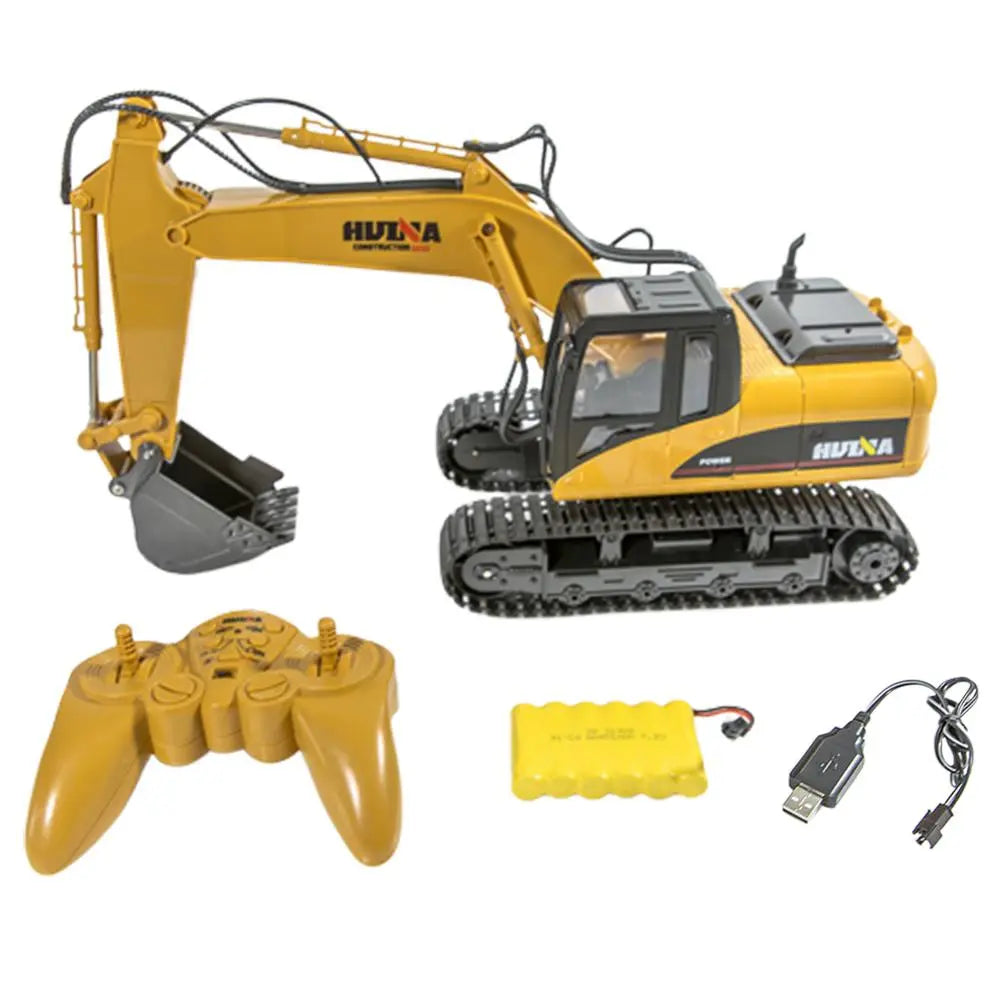Recognizing How Excavator Functions and Its Influence On Efficiency
Excavators play a crucial function in building and construction and mining operations, counting on an intricate interaction of hydraulic and mechanical systems. Their ability to execute a variety of tasks depends upon both their layout and the modern technology incorporated within. Comprehending these parts can substantially influence operational performance and productivity. As improvements continue to improve the industry, one should consider just how these modifications will influence future methods and efficiency.
The Fundamentals of Excavator Mechanics

The Duty of Hydraulic Systems in Excavators
At the heart of excavator operation lies the hydraulic system, which plays a pivotal function in powering the equipment's functions and activities. This system uses pressurized hydraulic liquid to move energy, allowing different actions such as moving, digging, and lifting. By taking advantage of the principles of hydraulics, excavators can perform jobs with amazing precision and force, boosting general operational efficiency.The hydraulic system contains essential parts, consisting of cylinders, valves, and pumps, which interact to control the circulation and instructions of the fluid. When the operator engages the controls, the hydraulic liquid is guided to particular cylinders, converting the driver's commands right into physical motion. This device enables receptive and smooth actions, which are important in building and excavation environments. double e volvo rc excavator. The performance of the hydraulic system straight influences the efficiency and flexibility of the excavator, making it an indispensable element in contemporary excavation procedures
Secret Parts of an Excavator
Recognizing the essential elements of an excavator is important for realizing how this effective equipment runs. An excavator contains numerous considerable components, consisting of the undercarriage, residence, bucket, arm, and boom. The undercarriage supplies security and movement, usually including wheels or tracks to browse different terrains. The residence includes the engine and hydraulic systems, enabling the operator to regulate motion and power the maker. The boom expands from your home, making it possible for vertical reach, while the arm attaches to the pail, assisting in digging and lifting operations.Additionally, the cab houses the operator, furnished with controls for specific handling. Each of these parts plays an important role in the excavator's total functionality, adding to its efficiency and performance on construction sites. Comprehending these components aids in enhancing and preserving excavator performance, ensuring tasks are completed safely and successfully.
Accessory Adaptability and Its Benefits
Add-on versatility is a crucial element of excavators, making it possible for operators to switch between numerous tools customized for specific jobs. This flexibility not just improves work performance yet additionally adds to cost-effectiveness by minimizing the demand for several makers. Comprehending the different sorts of add-ons available can greatly impact the total efficiency and capability of an excavator on work sites.
Sorts of Accessories
While excavators are mainly recognized for their excavating abilities, their real flexibility exists in the wide variety of accessories available. These accessories improve the excavator's capability, enabling it to perform numerous tasks past excavation. Usual attachments consist of pails (for digging and scooping), hydraulic thumbs (for realizing products), and augers (for piercing openings) Grapples are utilized for relocating and managing debris, while rippers can separate hard surface areas. Various other specialized attachments, such as plates and plows, make it possible for excavators to adjust to specific task needs. This diversity not just increases the maker's energy throughout different sectors, including demolition, building and construction, and landscaping, but also permits operators to tailor their tools to satisfy specific task needs efficiently.
Raised Task Efficiency
Optimizing task performance is a main advantage of making use of various excavator attachments. Various add-ons allow an excavator to carry out numerous jobs without needing to switch devices, saving important time and labor. For example, making use of a hydraulic hammer can damage concrete while a pail add-on can dig deep into soil, allowing a seamless workflow. This versatility decreases downtime related to devices changes and enhances efficiency on-site. In addition, specialized accessories boost precision in tasks such as grading or landscaping, resulting in better outcomes. The ability to adapt to different work requirements not only improves operations but also lessens the need for additional machinery, making sure that jobs are finished promptly and successfully. Overall, add-on versatility considerably contributes to raised work performance in excavation job.
Cost-Effectiveness and Versatility
Cost-effectiveness is a significant advantage of making use of functional excavator attachments. These attachments enable a single excavator to execute numerous tasks, minimizing the requirement for additional machinery and labor - double e volvo rc excavator. By changing in between containers, hammers, and grapples, operators can deal with various jobs, from excavating to demolition, thereby optimizing equipment utilization. This adaptability not only reduces functional prices however likewise lessens downtime connected with altering equipment. Furthermore, the capability to customize excavators with specialized accessories enhances efficiency, as they can effectively manage diverse jobs according to task demands. To wrap up, the combination of cost-effectiveness and convenience in excavator add-ons adds to enhanced functional performance and resource allotment in building and construction and excavation jobs

Advanced Modern Technology in Modern Excavators
Modern excavators are increasingly geared up with sophisticated modern technology that transforms excavation processes. Automation streamlines operations, while enhanced gas efficiency reduces functional costs. In addition, clever control systems improve precision and safety, marking a considerable development in excavation equipment.
Automation in Excavation Processes
As excavation modern technology advances, automation has emerged as a vital part in enhancing efficiency and accuracy on job websites. Modern excavators are outfitted with advanced automated systems that facilitate jobs such as grading, digging, and trenching with minimal driver treatment. These systems utilize sensing units, GPS, and artificial intelligence formulas to ensure exact placing and deepness control, significantly decreasing the margin for mistake. Additionally, automation permits drivers to focus on calculated decision-making instead than hand-operated controls, leading to enhanced performance in general. Such technologies not just improve workflows however also boost security by minimizing human error in intricate procedures. The assimilation of automation in excavation procedures stands for a significant improvement in building and construction technology, driving the industry towards higher effectiveness and performance.
Boosted Gas Efficiency
Innovations in technology have actually additionally led to significant enhancements in gas performance for modern excavators. Modern machines are equipped with advanced engines that optimize power output while reducing gas consumption. These engines utilize innovative burning modern technologies, such as turbocharging and straight gas injection, to enhance performance and performance. Furthermore, light-weight products in construction decrease general weight, allowing for much less energy expense throughout operation. The intro of variable speed controls makes it possible for drivers to change engine efficiency according to certain jobs, further lessening gas usage. Consequently, these enhancements not only lower operational expenses yet likewise add to environmental sustainability by lowering exhausts. Generally, enhanced gas performance in excavators is a crucial growth that bolsters efficiency and economic viability in the building industry.
Smart Control Solution
While drivers browse significantly complex job websites, clever control systems in excavators have actually become important devices for improving effectiveness and precision. These innovative technologies utilize formulas and sensors to keep an eye on various specifications such as load weight, terrain problems, and functional efficiency. By instantly adjusting hydraulic features, smart systems optimize maker performance, leading to boosted performance and minimized wear on components. In addition, operators take advantage of user-friendly user interfaces that offer real-time comments and diagnostics, permitting for informed decision-making. This combination of technology not just streamlines procedures yet likewise reduces human mistake, contributing to more secure workplace. As the building and construction market remains to progress, smart control systems will play a crucial duty in shaping the future of excavator effectiveness and performance.
Enhancing Operational Efficiency With Excavators
Excavators play an essential function in improving this page functional effectiveness throughout numerous building and excavation projects. Their adaptability enables for numerous tasks, consisting of lifting, excavating, and product handling, which simplifies workflows and reduces the requirement for extra tools. With effective hydraulic systems, excavators can perform heavy-duty tasks with precision, considerably lowering the moment called for to full jobs. The assimilation of sophisticated innovation, such as general practitioner and automated controls, better maximizes their procedure, enabling drivers to accomplish better precision and lower material waste. Furthermore, modern excavators are developed to take in less fuel and decrease emissions, adding to both price financial savings and environmental sustainability. By using excavators properly, building and construction groups can boost productivity, satisfy task target dates, and enhance overall site management. This multifunctionality and efficiency make excavators indispensable devices in the modern construction landscape.
The Future of Excavators in Construction and Mining Industries
As the construction and mining sectors develop, the future of excavators is positioned for significant makeover driven by technical innovation and altering operational demands. Advancements in automation and expert system are improving excavator abilities, permitting enhanced precision and effectiveness in operations. Independent excavators are emerging, lowering the demand for human treatment and lessening the danger of accidents.Moreover, the assimilation of telematics and IoT technology makes it possible for real-time tracking of maker performance and predictive maintenance, optimizing uptime. Green layouts, including hybrid and electrical versions, are obtaining grip, straightening with sustainability goals within the industry.Additionally, making use of innovative materials and lighter layouts enhances fuel effectiveness while maintaining efficiency standards. As these trends progression, excavators will play an important function in satisfying the enhancing demands for performance and security in building and mining, inevitably transforming functional landscapes.
Often Asked Questions
How Do Weather Affect Excavator Performance?

Climate condition significantly influence excavator efficiency, as rainfall and mud can impede traction and stability, while extreme temperatures might affect hydraulic systems. Operators has to adjust to these variables to ensure suitable performance and safety throughout operations.
What Precaution Should Operators Adhere To While Making Use Of Excavators?
Precaution for excavator drivers include putting on ideal personal protective equipment, carrying out pre-operation examinations, ensuring proper communication with ground workers, more helpful hints preserving a risk-free distance from overhead risks, and sticking to recognized functional methods to protect against mishaps.
How Typically Should Excavators Be Maintained for Ideal Performance?
Excavators need to be maintained on a regular basis to ensure peak performance, typically every 250 operating hours or as defined by the producer. Routine checks improve integrity, avoid unforeseen breakdowns, and extend the life-span of the devices.
What Is the Typical Life-span of an Excavator?
The ordinary life expectancy of an excavator generally ranges from 10,000 to 15,000 hours of operation. Aspects affecting longevity include maintenance practices, operating problems, and the high quality of the maker itself, influencing overall productivity and efficiency.

Can Excavators Operate on Uneven Surface Efficiently?
Excavators can run successfully on uneven surface due to their expressed layouts and adjustable tracks. These features permit them to click resources maintain stability and traction, enabling reliable procedure in challenging environments commonly encountered in construction and landscaping jobs. Each of these elements plays an essential function in the excavator's overall functionality, adding to its performance and efficiency on building and construction sites. Optimizing task performance is a primary advantage of using different excavator accessories. While drivers navigate progressively complex work websites, smart control systems in excavators have arised as essential tools for improving efficiency and precision. Excavators play a vital function in boosting operational performance throughout numerous building and construction and excavation jobs. Advancements in automation and man-made knowledge are improving excavator capacities, enabling for boosted accuracy and effectiveness in operations.